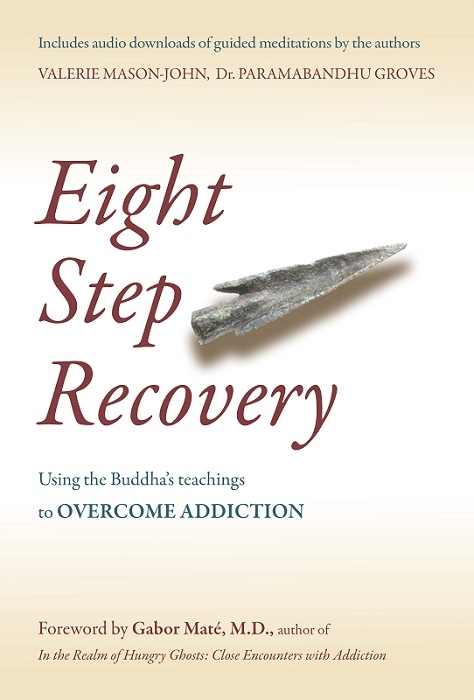Eight Step Recovery – Using the Buddha’s Teachings to Overcome Addiction – Book Review
The Buddhist tradition contains wisdom that can benefit those of us who have struggled with addiction. Mindfulness is just one example of what this path has to offer. Eight Step Recovery is a book by Valerie Mason-John and Dr Paramabandhu Groves that combines Mindfulness-Based Addiction Recovery (MBAR) with other useful teachings from Buddhism.
The Buddha in Recovery
“The Buddha offered his recovery to the world. His teachings can release us from the sting of suffering, so we do not need to self-medicate or push away the reality of life.”
Eight Step Recovery
Siddhartha Gautama (the man who became the Buddha) may never have experienced alcohol or drug addiction directly, but his spiritual journey was fueled by a deep desire to overcome suffering. He realized it was a craving to avoid reality that was source of his inner-turmoil, and his recovery began when he awoke to this truth.
The Buddha understood how the stuff we often do to avoid suffering can so often make our situation worse. In Eight Step Recovery, this is referred to this as ‘deluded self-help’. I remember when I first began drinking, it did seem to be easing my suffering – it took a lot of pain before I could accept how this behavior was making things much worse.
“The act of turning to addictions for recovery from pain or difficult situations is deluded self-help. We are looking in the wrong place for happiness. This misguided kindness toward ourselves perpetuates a cycle of pain.”
Eight Step Recovery
The problem with abusing alcohol or drugs isn’t that this behavior is evil or stupid but that it can’t do what we want it to do. It just doesn’t make us happy in the long-term. There is a better way, and Eight Step Recovery offers one potential path.
Eight Step Recovery
I don’t refer to myself as a Buddhist, but the teachings of this tradition have been a great help to me over the years. One of the nice things about this book is it takes some of this wisdom, and divides it into actionable steps to improve our life following addiction. This may be of help to those who just don’t have the time or motivation to deeply investigate Buddhism and are looking for some practical advice. These Eight Steps can also be a useful guide for practicing Buddhists who want to apply these teachings more fully in their recovery.
Step One: accepting that this human life will bring suffering
Step Two: seeing how we create extra suffering in our lives
Step Three: embracing impermanence to show us that our suffering can end
Step Four: being willing to step onto the path of recovery and discover freedom
Step Five: transforming our speech, actions, and livelihood
Step Six: placing positive values at the center of our lives
Step Seven: making every effort to stay on the path of recovery
Step Eight: helping others by sharing the benefits we have gained
A chapter in the book is devoted to each of these steps, and there are also plenty of personal stories to demonstrate how they work in reality. The program can be combined with something like the 12-Steps, but it is also designed to be used on its own.
Eight Step Recovery – Using the Buddha’s Teachings to Overcome Addiction is available to buy from Windhorse Publications. It can also be found on Amazon Eight Step Recovery
